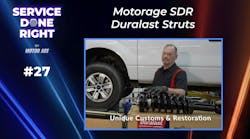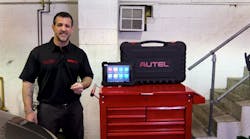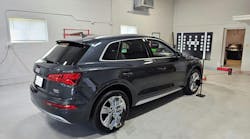According to the Environmental Protection Agency (EPA), the air inside a vehicle's cabin can be up to 15 times more polluted than the outside air. This, of course, is due to the confined space and recirculation of air within the cabin.
In this Tech Tips video, Scott Brown dives into the world of cabin air filters and shows how Bosch Workshop filters can take your services to the next level.
To learn more, click here.
Cabin air filter replacement is a common service item that can have significant implications for both vehicle performance and occupant health. Here are some key statistics and facts:
1. Manufacturers typically recommend replacing cabin air filters every 12,000 to 15,000 miles, but this can vary based on driving conditions.
2. A dirty cabin air filter can reduce air flow by up to 50%, putting extra strain on the HVAC system and leading to higher repair costs.
3. A clean cabin air filter can improve HVAC efficiency and reduce load on the engine, potentially improving fuel economy slightly.
4. Regular replacement can drastically reduce pollutants inside the vehicle, important since the concentration of pollutants inside a car can be 6 times higher than outside.
5. Many drivers are unaware of the cabin air filter's existence; informing customers can lead to a higher rate of service acceptance.
6. The cabin air filter market is expected to grow, driven by increasing vehicle parc and awareness of health issues related to air quality.



